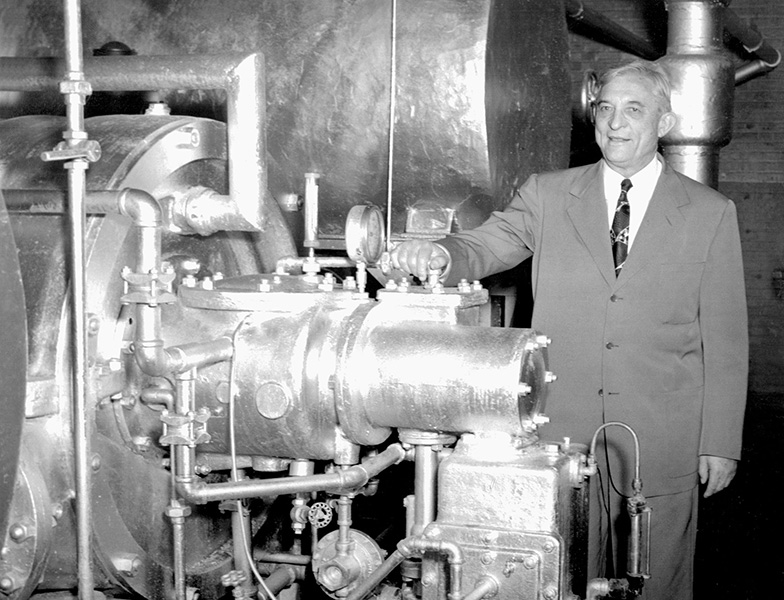Carrier, Willis Haviland (1876-1950), an American engineer , became known as the father of the air-conditioning industry. In 1915, he founded Carrier Engineering Corporation. The company led the air-conditioning industry for decades. The spread of air conditioners encouraged the growth of cities in warmer regions. Architects embraced air conditioning and abandoned older designs for keeping houses cool, such as breezy open spaces and sleep-in porches.

Carrier was born in Angola, New York, on Nov. 26, 1876. He earned an engineering degree from Cornell University in 1901. Carrier designed equipment to dry coffee and lumber while working for a heating equipment company in Buffalo.
In 1902, a Brooklyn printer complained that varying moisture levels in his factory’s air made paper shrink or expand. Such inconsistency made it impossible to print illustrations properly. Carrier invented machinery that pumped air over coils full of cold water and then over coils full of ammonia . The machinery then blew the air into factory rooms. The resulting air had a consistent moisture content. Carrier soon developed similar systems to improve production in bakeries, textile mills, and other factories. By 1911, Carrier devised calculations relating air humidity and temperature . These calculations form the basis of modern air conditioning science.
Carrier soon realized that such equipment could also cool large public places. Earlier air cooling devices, which made use of fans and ice , did not work well. Many people first experienced air conditioning in movie theaters, department stores, and hotels. Carrier’s systems cooled the United States Capitol , the White House , the Pentagon Building , and the hockey rink at New York City’s Madison Square Garden. By 1928, Carrier developed smaller systems for home use.
Carrier earned over 80 patents during his life. He died on Oct. 7, 1950, in New York City.
